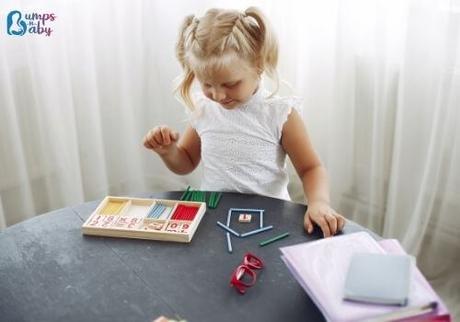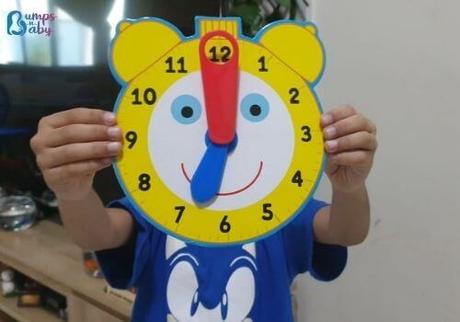We often discuss tech-based stuff, academics of kids, how to excel in math, and so on. But there is something equally important that we need to work on and that is how to teach child soft skills. Soft skills are needed in every aspect of our life and career and it is never too early to be prepared.

What are soft skills?
Soft skills are quite different from hard skills. Soft skills are basically people skills and character traits that determine how we interact with others. In the digital world of today, are we explicit about these things? Are we evaluating our kids on these skills? Have we ever made a note of them?
Soft skills are important as it shapes the character of a child and I strongly believe there is no age to start grooming kids. Earlier the better. Start from the little things that we do on a daily basis. It is not a big task if you start at the right time. Well, today we are going to talk about how to imbibe soft skills for kindergarten.
Different Soft Skills and Ways to Teach Child Soft Skills
I have listed a few points on soft skill training for kids, which I feel is important. These are based on my observations and experience. I have also penned on the best way to teach child soft skills citing a few tips and examples along with.
1. Communication
First on my list of soft skills for kids is communication. Communication is not English, it is about conveying the message in the right way and making it complete ( Follow 7Cs of Communication), whichever language be it. As English is the official language used in Corporates, we do have to give it equal importance as one's mother tongue. Talk to kids as much as possible. Ensure the conversation happens in an age-appropriate way as the whole purpose is to make them understand. Have them respond to your talks and encourage them.
 Tips for teaching kids effective communication
Tips for teaching kids effective communication

- Make book reading a practice at home
- Encourage them to talk to different people
- Have them speak about different activities like their day at school, a book they read, or so on
- Correct their mistakes immediately and make them understand the right.
- Build up their vocabulary by initiating one new word daily.
Read: When do Kids Start Talking
2. Social Skills
Social skills play a vital role in our daily lives. It is very important to build upon our interpersonal skills as it projects oneself. Skills like greeting people when you meet, maintaining eye contact while speaking, learning to share, and cooperate are a few. These can be best taught to kids in the form of role plays. One can pick up any scenario and try to create a play including various social skills. To start with, organize a lot of playdates for kids with their friends. This way they socialize more. Also let them interact with your guests, how to welcome them, and so on. Kids learn what they see around so we need to be a good role model first.
3. Body Language
One can judge a person by his or her Body Language. It reflects and talks about the person in you. With a strong body language, you can create a long-lasting impression. The way you walk, facial expression, gestures, space, a proper handshake, body movement, and postures are a few to list. Developing these in kids at a very early stage is important.
Things to be taught
- Have them maintain a straight posture all time. Don't let them slouch.
- Do make kids sit on the floor with legs folded as we did traditionally while eating food or doing work. This helps in bringing up the right physical development.
- Encourage them in a lot of sports to make them flexible
- Maintaining proper eye contact while speaking is a must.
- A stern handshake should be practiced.
- Ensure kids don't drag their footwear while walking instead lift their legs.
- A smiling face while greeting someone is a must.
4. Resilience
Life is not always smooth nor is it filled with only good days. One has to be resilient to overcome obstacles and failures in life. Adapting to different changes, coping with stress and challenges makes a person resilient.
Tips for teaching kids to be resilient
- Don't overly applaud for every success of your kid, that they might find it difficult to take up failures.
- Let them know winning and losing, a good and a bad day are all part of life.
- Try to talk with kids whenever you feel they are stressed. Resilience needs relationships. Be there for them always.
- Make kids feel optimistic
- Encourage kids to ask for help whenever they need
5. Problem solving skills
Problems and challenges are part of our lives. Our little ones do come across difficult situations, could be a tough math question, get bullied from friends or sibling conflict, shortage of resources at the last minute for some project, etc. As parents, our job is to train our kids to solve and tackle such issues rather solving everything for them. Tune them in a way that they are ready to face it. This would help them become confident, smart, and successful individuals.
 Tips to build problem-solving ability in kids
Tips to build problem-solving ability in kids

- Talk about different situations or scenarios from a TV show or from a book, like twist a little from the story e.g. what if Rapunzel's hair weren't that long to reach the ground?
- While trying to solve their problem, don't directly give them the answer. Instead, ask them multiple questions and guide them to the solution. It would benefit the next time they come across a similar problem.
- Encourage them to take advice
- Kids learn what they see. Let them watch your failures and getting up from it. Teach child soft skills by being a role model.
- When they are solving something, as tricky or difficult as it may be, permit them to struggle, fail, and learn from the experience.
- Outdoor playing with friends teaches child soft skills that are important. Problem solving is one of them. They would discover different solutions to problems themselves.
6. Teamwork
Teamwork is one of the most important skills that every child should develop. It is one of the core skills that kids should be taught at an early age. Teamwork encourages children to find ways to work with each other to achieve a common goal. Be at home or school, kids should learn to be a part of a team.

Tips to teach kids teamwork
- Have a fun Friday where all members of the home do an activity like cleaning the wardrobe or organizing a tea party at home where tasks are delegated to each one of them.
- Group plays with friends are a great exercise for learning how to be a part of a team.
- Here's a small game: Have kids stand in a straight line. The kid at the front of the line is the leader. He or she would perform any action or make a sound which the following kids have to observe and repeat. It helps to encourage the leader to express their creativity and explore a different range of actions during their turn. After a period of time, the leader goes to the back of the line and another participant takes their place. Repeat until every child has had at least one turn as a leader.
7. Listening Skills
A good communicator is a good listener. It's a skill that can be acquired and developed but it takes time and patience to master. Kids usually tend to get engrossed in their activity and not pay attention to what is being said. Also, there are times they would listen halfway and carry on. These are places where tuning is required.
- Read stories to your child. Ask him or her to predict what will happen next. The prediction requires your child to listen to the details to make a logical guess.
- Have conversations about things your child is interested in. This gives your child a chance to engage in a real conversation, practicing both speaking and listening.
- Play the telephone game or commonly called as Chinese Whisper. Sit together in a circle have one person whisper a sentence to the next person. Each person repeats it to the next till it reaches the final person. Have this person say the sentence aloud and see how much the two sentences have changed.
- Follow the direction game. Give short, simple instructions, and have your child draw according to the directions they listened.
8. Time Management
Cultivating this skill at a very young age is the ideal thing to do. A lot of things can be done with proper planning. It is crucial for each of us today to learn to manage time. Make the habit of maintaining a to-do list and keep it handy. Learning time management can be made absolute fun for kids. Get creative in making a calendar for them. Use crayons to make it look colorful, add stickers to mark special days. Have kids plan a daily and weekly schedule for them. Treat them if they do it well for that month.

Tips to Teach your Child Time management
- Make each activity a game like completing simple tasks around the house without wasting much time, such as keeping back all the things back to its place before going to bed, getting their backpacks ready for school the next day. The more fun you make to teach time management for your kids, the better the result.
- Bring in the habit of finishing all the tasks or reaching a place 10 to 15 mins prior to the said time. My dad always insisted on this when I was a child. If you are early you get time to relax, but if you are late you lose it. This really works.
- Create a monthly calendar for your little one, 1st of every month, where you list down things to be done eg, books to be read that month, activities to be done, new learning, and so on. Proper planning always gives you the best output.
- Don't overschedule your kids
9. Building Rapport
Maintaining relationships today has become easier yet tough in this digital world that we are living in today. We are controlled by technologies though it should have been vice versa. Online shopping, online transactions, home delivery, and so on have limited one to one conversations today. To teach child soft skills of rapport building is very important. It can bring you countless opportunities. Having a good rapport would make people more likely to accept your ideas, share information, and to create opportunities together.
Tips to teach the soft skill of building rapport
- Encourage kids to talk to people and get connected.
- Teach them to be empathetic
- Allow kids to socialize, be a part of gatherings, and organize little tea parties at home.
- Try doing offline shopping more, this helps in person to person conversation and meeting new people.
10.Self Confidence
Self-esteem or self-confidence is one step closer to living life smoothly. Having said, it doesn't mean one won't face challenges but would surely be strong and equipped in facing it. Children become self-confident from their own accomplishments.
Tips for developing self-confidence in kids
- Playtime is a must. This is a time where kids instill a lot of skills. More outdoor plays are sure to instill confidence in them.
- Give them small jobs that are age-appropriate on a daily basis.
- Allow them to take their decisions on small things like dress color, what activity to be done for the day, and so on. This would help them in taking up responsibilities.
Encourage and appreciate them but don't overdo it. Too much praise can create pressure to perform and set up a constant need for approval from others.
Read: 8 Reasons your Kids should do Household Chores & 15 Ways to Encourage Them
11. Self-control - a must teach soft skill
Teaching self-control is one of the most important things that parents should focus on. Most kids are quite impulsive in nature. Self-control can be cultivated over time.
- Make a proper schedule for your child that he/she gets used to the routine. Practicing this would make kids less likely to get derailed by other activities.
- Praise your child for not losing control in frustrating or difficult situations by saying things like, "I like the fact you didn't cry" or "I appreciate you for staying calm." This works.
- Explain things with its consequences
- Don't over pamper your kids with a lot of toys that they stop valuing them.
- Have the habit of saying a NO when required. Don't fall for their tears always.
By setting up a good environment for kids to learn and explore, we as parents can help them grow up in the right way. Providing them a generous amount of encouragement and spending quality time together are a few things parents should make a note of. Teach child soft skills starting from an early age. Invest your time with kids for that is the biggest present you can give to your kids. Give the right shape to the clay in your hands for you are their creator.
